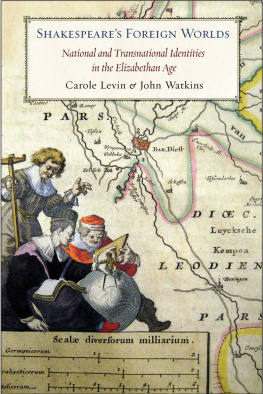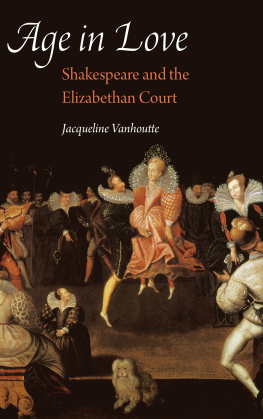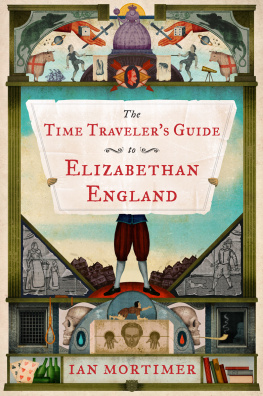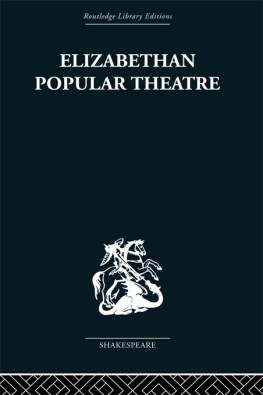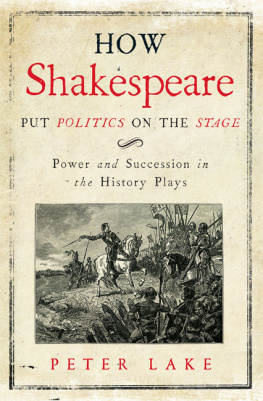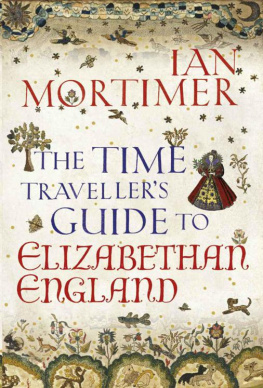Routledge Library Editions Shakespeare
HISTORY & POLITICS
In 6 Volumes
I | Shakespeares Histories | Campbell |
II | England in Shakespeares Day | Harrison |
III | Shakespeare Reproduced | Howard & OConnor |
IV | Shakespeare and the Lawyers | Phillips |
V | The English History Play in the Age of Shakespeare | Ribner |
VI | Power on Display | Tennenhouse |
Routledge Library Editions
ENGLAND IN HAKESPEARES DAY

SHAKESPEARE

First published in 1928
Reprinted in 2005 by
Routledge
2 Park Square, Milton Park, Abingdon, Oxfordshire, OX14 4RN
270 Madison Avenue, New York NY 10016
Routledge is an imprint of the Taylor & Francis Group
First issued in paperback 2010
All rights reserved. No part of this book may be reprinted or reproduced or utilized in any form or by any electronic, mechanical, or other means, now known or hereafter invented, including photocopying and recording, or in any information storage or retrieval system, without permission in writing from the publishers.
The publishers have made every effort to contact authors/copyright holders of the works reprinted in Routledge Library Editions Shakespeare. This has not been possible in every case, however, and we would welcome correspondence from those individuals/companies we have been unable to trace.
These reprints are taken from original copies of each book. In many cases the condition of these originals is not perfect. The publisher has gone to great lengths to ensure the quality of these reprints, but wishes to point out that certain characteristics of the original copies will, of necessity, be apparent in reprints thereof.
British Library Cataloguing in Publication Data
A CIP catalogue record for this book is available from the British Library
England in Shakespeares Day
ISBN 978-0-415-33086-2 (set)
ISBN 978-0-415-35311-3 (volume hbk)
ISBN 978-0-415-61230-2 (volume pbk)
ISBN 978-1-134-56590-0 (volume ebk)
Miniset: History & Politics
Series: Routledge Library Editions Shakespeare

First Published in 1928
PRINTED IN GREAT BRITAIN
I F a foreign historian wished to write the history of the English people during the first quarter of the twentieth century he would find ample material at hand. For statistics of trade, population, national income and the like he would turn to the Blue Books and other official compilations; for the administration of justice to the Law Reports; for legislation to Hansard; for a record of events, day by day or week by week, to The Times or the periodicals ; and from these sources he would be able to compile an exact and detailed account of the things done by the English people. But much would be missing; the result would be a photograph and not a picture, giving the features only, and telling very little of the mind of the nation, especially as revealed in its everyday life; for newspapers, law courts and government departments are not much concerned with the commonplaces of humanity, nor with the ideals and problems of ordinary folk. The burning desire of the townsman to escape into the country finds no expression in the debates of Parliament until the charabanc becomes a nuisance to the Rural District Council.
To complete his picture the historian would needs leave the definite information of his Blue Books and to grope in the literature of the people of England for the inner life of those who read and wrote its books. And here he would perceive, without being able to define his feelings with any exactness, how, for instance, the romantic idealism of the 188os, expressed by Lord Tennyson, merged into the national idealism of Mr. Rudyard Kipling in the Boer War period, and was succeeded by the social idealisms of Mr. Bernard Shaw of the years before the War ; and then how idealism for a time seemed to be blotted out altogether until it begins slowly to emerge in a new feeling towards co-operation between employer and worker.
With the period covered approximately by the life of Shakespeare, that is from about 1560 to 1625, the historian has much the same problem. Naturally there is less material; there are neither Blue Books nor newspapers ; but detailed accounts of the business transacted in Parliament survive; the correspondence books of the Privy Council, which was an even more important body than the Cabinet to-day, are easily accessible; and by grouping together the records scattered in the collections of the State Papers, City Records, and Historical Manuscripts in private collections, a very complete account of Elizabethan England can be compiled.
In literature, however, the difficulties are greater. For the first two decades of this period, English literature is somewhat barren; the Muses were numb and torpid in those years, moving their stiff limbs slowly and laboriously.
The year 1579 is a landmark; Spenser published The Shepherds Calendar, the greatest experiment in English poetry since the death of Chaucer; Lyly his Euphues; and Gosson did poets a good turn by attacking them in his School of Abuse, thereby rousing artists of all sorts to formulate their ideals in defence of their craft. The next twelve years were a time of experiment in technique; amongst the more important works in prose being Sidneys Arcadia and The Apology for Poetry, to be followed by the early euphuistic novels of Greene and Lodge ; in verse by Spensers Complaints and the first books of the Fairy Queen ; in drama by Lylys Court comedies, and, on the public stages, by Marlowes Tamburlane and Dr. Faustus, Kyds Spanish Tragedy, Greenes Friar Bacon, Peeles Old Wives Tale. English writers were as yet more concerned with entertaining, apart from Sidney, Spenser and their group who were moved by a lofty idealism that poets imitate both to delight and teach, and delight to move men to take that goodness in hand which without delight they would fly as from a stranger, and teach to make them know that goodness whereunto they are moved.
In the next decade (15901600) English writers passed beyond the stage of experimenting merely with form and now began to widen the range of their subjects. Marlowes tragediesDr. Faustus and The Jew of Maltaare more than mere stage plays : they are concerned, though perhaps not very deeply, with psychological problems. Similarly in prose Greene ceased writing romantic love stories and in the winter of 1591 and spring of 1592 produced a series of pamphlets describing the tricks of the professional thieves and rascals about London. In poetry Spenser continued to allegorize his ideals in the Fairy Queen ; but he was with the old and not the new generation, looking back to the Middle Ages for his models and not a little disgruntled at the apparent decadence of the younger poets and the lack of practical appreciation of his own work. The younger poets meanwhile were exploring many new tracts of knowledge and experience. From the sensuous romance of
Next page


